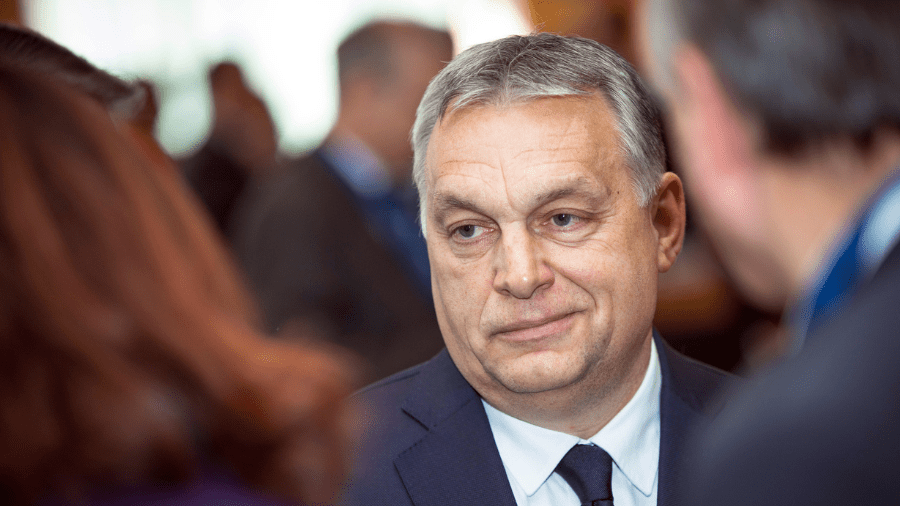This article originally appeared in The Hub.
By J.L. Granatstein, January 12, 2024
In November 1956, Moscow sent tanks into Hungary to crush a popular rebellion that had taken control of the eastern European nation. The new government under Imre Nagy had declared its intention to withdraw from the Warsaw Pact, to hold free elections, and to become a neutral state. But Hungary’s brief freedom died under Soviet tank tracks with 2,500 dead, 20,000 wounded, and some 250,000 fleeing to the West (many of whom ended up in Canada). Nagy was duly executed.
Seven decades later, many of the ten million Hungarians seem to have forgotten these events, including Prime Minister Viktor Orban. Orban’s no communist, however—he is a self-proclaimed “illiberal Christian democrat,” though his opponents doubt his claims to be any type of democrat. His government has gradually seized control of much of the nation’s media and labelled press critics as purveyors of fake news. He has tweaked the constitution and legislative regulations to strengthen his grasp, and he spouts anti-immigrant rhetoric while denouncing racial and cultural integration. This has given Orban’s party a strong majority government.
The European Union, fearing Hungary’s turn to autocracy, has held back funds desperately needed by Budapest’s struggling economy. Orban’s response has been to disrupt the EU’s procedures and plans. Ukraine needs more financial aid to fend off Russia’s invasion? Hungary’s objections are enough to block this. And besides, Orban says, Russia’s attack on Kyiv is not war. The numbers of casualties suffered by the combatants, of course, do suggest that it’s much more than a mere barroom fight.
Ukraine wants to be in the EU. Not so fast, Orban says, and certainly not before Kyiv gives Hungarian speakers in Ukraine back their language rights. In one recent openly revanchist speech Orban implicitly called for territorial adjustments that would give Hungary back the territory it lost after the First World War, something that must worry not only Ukraine but also Romania, Slovakia, Serbia, Montenegro, Croatia, and Slovenia. The EU’s rules require unanimity, and Hungary can hold up anything—at least until Brussels caves in and releases the funds it has held back because of Orban’s “illiberal” democratic policies.
It’s the same with NATO. In his first term, Orban took Hungary into NATO in 1999, but now that Sweden wants to join, Hungary is stalling, claiming loudly that Sweden has been calling Orban an autocrat who is corrupting the rule of law. Orban labels these “blatant lies.” Sweden is not threatened, Hungary says, so why does it need to be in NATO? The Swedes, like the Finns, historically neutral, may be the best judges of whether or not they feel threatened by President Vladimir Putin’s fascistic regime. And it may be that Orban (who has bought fighter jets from Saab) only wants Stockholm to bow, scrape, and kiss his ring.
Flying in the face of history and memory, Orban’s Hungary, Russia’s only real ally in Western Europe, now wants closer relations with Moscow, and he and Putin happily pose for photographs. Moreover, playing its role as Moscow’s trojan horse, Budapest says it supports China’s peace plan for Ukraine, one that calls for an end to Western sanctions and a ceasefire that would effectively give Moscow permanent control of the eastern provinces it presently occupies. How Hungary can be in the EU and in NATO while supporting the policies it does and blocking those it dislikes boggles the mind.
That is the real question. Governments change and so do policies, and neither the EU nor NATO wants to throw Budapest under the bus, something that would only benefit Moscow (and do nothing to improve the lives of Hungarians). But there comes a point when obstruction becomes more than a delaying tactic and turns into a deliberate attempt to sabotage the will of the vast majority.
The time has come for President Joe Biden’s administration to talk tough to Budapest. That might work. But with his anti-immigration policy, his attacks on the media, and his pro-Putin attitude, Orban has many friends in any putative Trump administration. He might be willing to accept temporary pain for long-term gain until the coming American elections in November determine who will rule in the U.S. The one certainty is that neither the EU nor NATO should put up with Orban and his illiberal democracy much longer.
J.L. Granatstein is the former director and CEO of the Canadian War Museum and the author of Canada’s Army: Waging War and Keeping the Peace (2021). He sits on the Macdonald-Laurier Institute’s Research Advisory Board.





